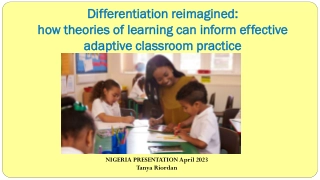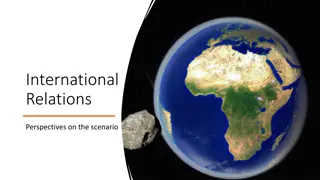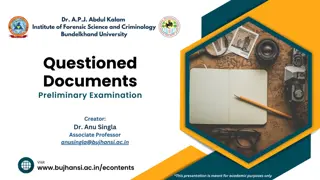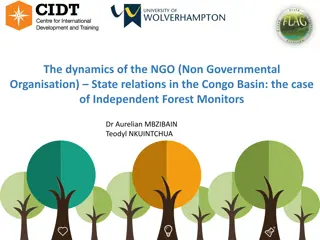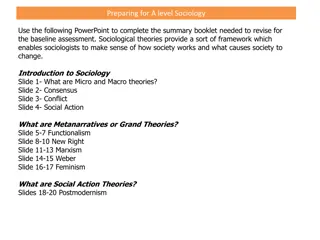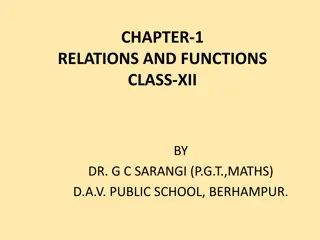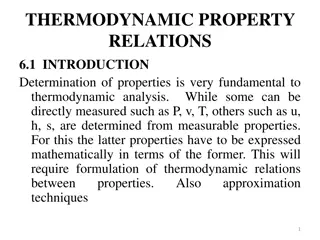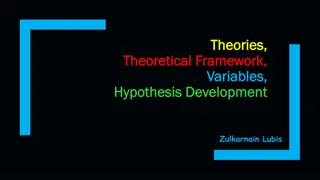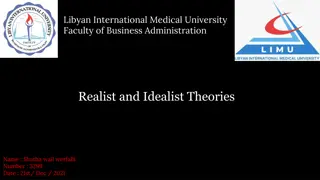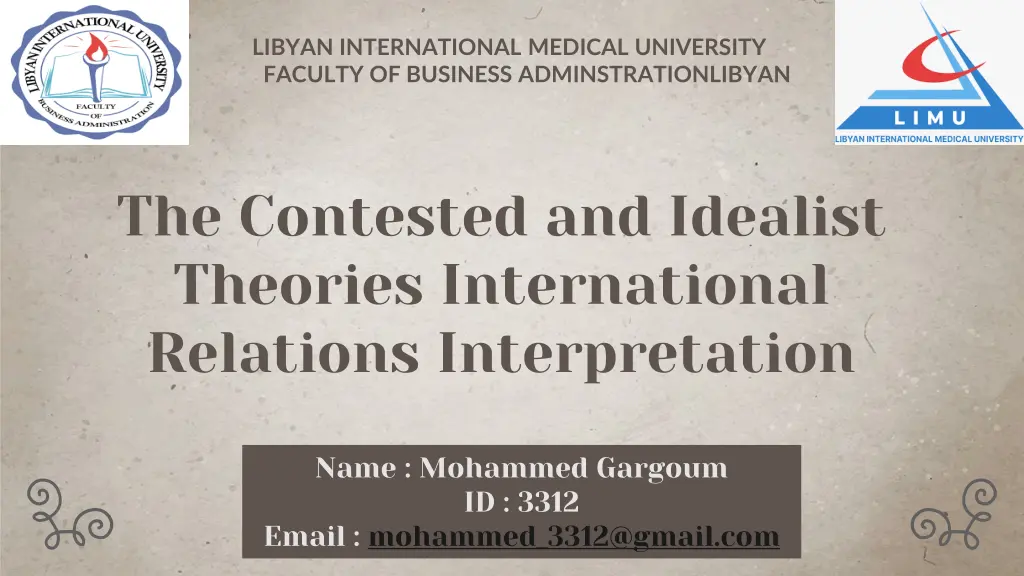
Exploring International Relations Theories: Realism, Liberalism, and More
Dive into the diverse theoretical approaches in international relations, including Realism, Institutionalism, Liberalism, and Constructivism. Understand how these theories shape global interactions and governance.
Download Presentation

Please find below an Image/Link to download the presentation.
The content on the website is provided AS IS for your information and personal use only. It may not be sold, licensed, or shared on other websites without obtaining consent from the author. If you encounter any issues during the download, it is possible that the publisher has removed the file from their server.
You are allowed to download the files provided on this website for personal or commercial use, subject to the condition that they are used lawfully. All files are the property of their respective owners.
The content on the website is provided AS IS for your information and personal use only. It may not be sold, licensed, or shared on other websites without obtaining consent from the author.
E N D
Presentation Transcript
LIBYAN INTERNATIONAL MEDICAL UNIVERSITY FACULTY OF BUSINESS ADMINSTRATIONLIBYAN The Contested and Idealist Theories International Relations Interpretation Name : Mohammed Gargoum ID : 3312 Email : mohammed_3312@gmail.com
Table of Content Table of Content 01 02 03 04 Introduction Institutionalism Liberalism Realism 06 08 05 07 Constructivism Idealism Conclusion References 01
Introduction The study of international relations takes a wide range of theoretical approaches. Some emerge from within the discipline itself; others have been imported, in whole or in part, from disciplines such as economics or sociology. Indeed, few social scientific theories have not been applied to the study of relations amongst nations. 02
Realism For Realists (sometimes termed structural Realists or Neorealists , as opposed to the earlier classical Realists ) the international system is defined by anarchy the absence of a central authority (Waltz). States are sovereign and thus autonomous of each other; no inherent structure or society can emerge or even exist to order relations between them. 03
Institutionalism Institutionalists share many of Realism s assumptions about the international system that it is anarchic, that States are self- interested, rational actors seeking to survive while increasing their material conditions, and that uncertainty pervades relations between countries. However, microeconomic theory and game theory to reach a radically different conclusion that co-operation possible. Institutionalism relies on between nations is 04
Liberalism Liberalism makes for a more complex and less cohesive body of theory than Realism or Institutionalism. The basic insight of the theory is that the national characteristics of individual States matter for their international relations. 05
Constructivism Constructivism is not a theory, but rather an ontology: A set of assumptions about the world and human motivation and agency. Its counterpart is not Realism, Institutionalism, or Liberalism, but rather Rationalism. By challenging the rationalist framework that undergirds many theories of international relations, Constructivists create constructivist alternatives in each of these families of theories. 06
Idealism Idealism, in philosophy, any view that stresses the central role of the ideal or the spiritual in the interpretation of experience. It may hold that the world or reality exists essentially as spirit or consciousness, that abstractions and laws are more fundamental in reality than sensory things, or, at least, that whatever exists is known in dimensions that are chiefly mental through and as ideas. 07
Conclusion While many theories of international relations are fiercely contested, it is usually inappropriate to see them as rivals over some universal truth about world politics. Rather, each rests on certain assumptions and epistemologies, is constrained within certain specified conditions, and pursues its own analytic goal. While various theories may lead to more or less compelling conclusions about international relations, none is definitively right or wrong . Rather, each possesses some tools that can be of use to students of international politics in examining and analyzing rich, multi-causal phenomena. 08
References The International Herald Tribune Anne-Marie Slaughter. (n.d.). Retrieved December 21, 2021, from https://scholar.princeton.edu/sites/default/files/slaughter/files /iht102805.pdf Encycloaedia Britannica, inc. (n.d.). Idealism. Encyclop dia Britannica. Retrieved December 21, 2021, from https://www.britannica.com/topic/idealism 09
Thanks 10

